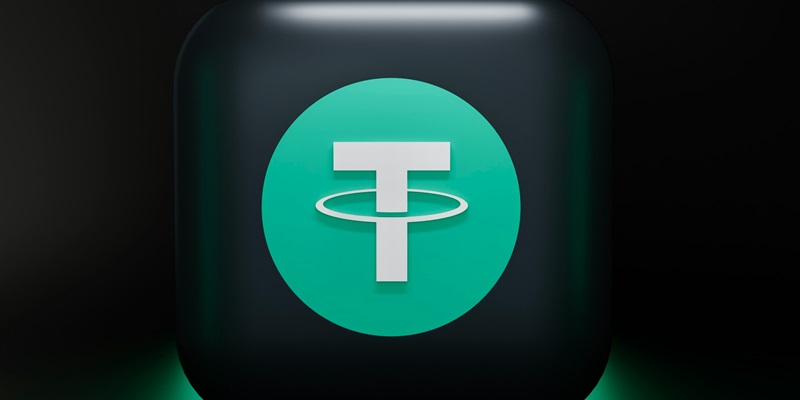The integration of Tether’s USDT stablecoin into the Philippines’ Social Security System (SSS) marks a groundbreaking step in weaving cryptocurrency into the fabric of a nation’s public financial framework. SSS, a state-managed program, provides indispensable financial support to Filipino workers across diversified sectors through services like social security and employee compensation. The incorporation of USDT into SSS transactions exemplifies the rising influence of digital currencies and blockchain technology in mainstream financial operations, representing a monumental shift towards more efficient, secure, and cost-effective financial solutions.
Partnership with Uquid: A Game-Changer in Financial Transactions
Enhanced Accessibility and Efficiency
Residents in the Philippines now have the unprecedented opportunity to contribute to the SSS using USDT, enabled by a strategic partnership between Tether and Uquid, a local blockchain firm. Uquid is well-regarded for its decentralized finance (DeFi) and blockchain solutions, offering various crypto payment options to a user base exceeding 260 million. This collaboration is crafted to revolutionize the landscape of financial transactions by making them faster and significantly reducing costs, thus ensuring that a broader segment of the population can efficiently access financial services. The partnership’s primary aim is to dismantle the barriers posed by traditional banking systems, which often involve lengthy processing times and hidden fees.
Tran Hung, CEO of Uquid, underscored the importance of this partnership, calling it a significant milestone in the effort to integrate digital currencies into everyday transactions, with a particular focus on enabling crypto micropayments. By facilitating the use of USDT for SSS contributions, the alliance seeks to set a new standard for convenience and accessibility, not only in the financial sector but also in the broader scope of digital commerce. The ability to make micropayments efficiently and securely opens up a plethora of opportunities for both individuals and businesses, fostering a more inclusive financial environment that matches the fast-paced demands of modern consumers.
Uquid’s Role in the Transformation
Uquid’s role in this transformation cannot be overstated. By leveraging its advanced blockchain solutions, Uquid ensures that transactions are not only swift but also secure, thus building trust among users who might be skeptical of migrating from traditional banking to digital alternatives. The blockchain firm has long been an advocate for the expansion of crypto payment options, and this partnership serves as a testament to its commitment to enhancing financial accessibility and inclusion. This collaboration is more than just a business venture; it represents a bold step towards a future where digital currencies are seamlessly integrated into public financial systems, providing unprecedented levels of efficiency and security.
The implications of this partnership extend beyond the Philippines, potentially serving as a model for other countries looking to modernize their financial systems. With over 260 million users already benefiting from Uquid’s crypto solutions, the integration of USDT into the SSS could catalyze a broader acceptance of digital currencies in everyday transactions. By prioritizing user experience and transaction security, Uquid and Tether are not only simplifying the process but also making a compelling case for the broader adoption of blockchain technology in the public sector.
Expanding Global Reach with Tether’s Strategic Partnerships
Tether’s Global Influence and Recent Developments
Tether, with its headquarters in the British Virgin Islands, has been a pivotal player in streamlining cross-border and regional payments since its inception in 2014. The company’s efforts have significantly contributed to the global growth of crypto payments, as evidenced by its recent partnerships that aim to broaden the accessibility and utility of USDT. For instance, Tether’s collaboration with Ivorypay is designed to facilitate digital asset payments in Africa, offering a reliable and efficient payment method for a continent that often faces challenges in accessing traditional banking services. This partnership underscores Tether’s commitment to driving financial inclusion through innovative blockchain solutions.
In addition to its efforts in Africa, Tether has also entered into a significant partnership with Telegram to integrate USDT for payments on the social media platform. This initiative not only broadens the scope of USDT’s utility but also aligns with the growing trend of integrating digital currencies into social media ecosystems. By enabling users to send and receive payments seamlessly within the Telegram platform, Tether is setting a new precedent for the integration of financial services into daily online interactions. This move is particularly pertinent as it targets a vast user base that can benefit from the efficiency and security offered by blockchain technology, further solidifying USDT’s position as a versatile and accessible digital asset.
The Broader Influence on Financial Systems
The integration of Tether’s USDT stablecoin into the Philippines’ Social Security System (SSS) represents a monumental advancement in incorporating cryptocurrency into a nation’s public financial infrastructure. The SSS, a state-administered program, offers crucial financial support to Filipino workers across various sectors, including services like social security and employee compensation. By incorporating USDT into its transactions, the SSS highlights the growing impact of digital currencies and blockchain technology in mainstream financial operations. This marks a significant shift toward more efficient, secure, and cost-effective financial solutions, demonstrating how technology can enhance traditional public financial systems. The use of USDT will likely streamline processes, reduce transaction costs, and enhance overall security, which is especially vital for a nation with a large and diverse working population. This groundbreaking step by the Philippines sets a precedent for other countries considering the integration of cryptocurrency into their public financial frameworks, paving the way for broader acceptance and utilization of digital currencies worldwide.

